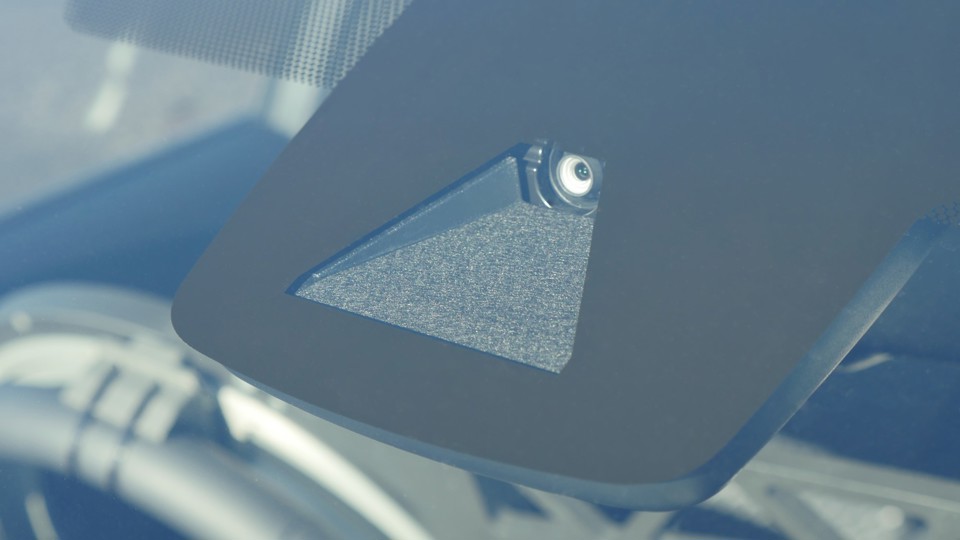Thatcham Research has continued its commitment to improving road safety through the promotion of properly functioning ADAS on vehicles with the launch of a new repair course accredited by the Institute of the Motor Industry (IMI).
Following the May launch of industry-first repair guidelines for advanced driver assistance systems (ADAS), Thatcham has announced new IMI-accredited calibration training designed to close an emerging skills gap among aftersales technicians which could potentially impact road safety.
Thatcham and other industry stakeholders, worked closely with the IMI to bring to market what it referred to as “one mechanism to support proof of competency, a core tenet to both the initial repair guidelines and upcoming ADAS repair Code of Practice”.
Dean Lander, head of repair sector services at Thatcham Research, said: “The evolution, and widespread adoption, of ADAS features on new vehicles presents the whole repair sector with a challenge.
“It’s paramount that repaired vehicles are returned to customers with these potentially life-saving features operating as they were pre-accident.
“This course will give technicians the knowledge and skills to do that job and provide peace of mind that ADAS has been reinstated safely.”
Thatcham’s new ADAS repair course will provide vital competencies to technicians, including how to interpret information relating to a specific vehicle’s ADAS features and determine the required method of calibration.
It will also cover the correct use of tools and equipment and how to identify, locate and follow software-specific recalibration methods.
It is estimated that four million cars on the road today are fitted with Autonomous Emergency Braking (AEB) and all the 29 cars tested by Euro NCAP so far this year have at least one ADAS technology fitted as standard.
The technology has emerged as a key component in OEMs' pursuit of a five-star Euro NCAP safety rating.
However, since the publication of its ‘Managing vehicle repairs involving ADAS’ document, Thatcham Research has been engaged in industry consultation with key industry associations and bodies, including the IMI, SMMT, BVRLA, NBRA and Independent Garage Association (IGA) to ensure that processes are in place to ensure the correct maintenance of such systems.
Lander said: “We’ve been looking for consensus on the key issues to be addressed. Chief among these are the lack of technical capability and capacity to effectively manage the current volume of ADAS in repair.
“The process continues as we work towards releasing a Code of Practice at the end of the year, to ensure a sustainable, standardised approach to the repair of ADAS-equipped vehicles.”
Steve Scofield, head of business development for the IMI, said: “It is imperative that the ADAS Code of Practice drives technician competence in recalibration so that vehicles are repaired with safety features such as AEB fully reinstated.
“Motorists need to have the peace of mind that repairs are done so that ADAS technology remains wholly effective.
“The IMI continues to work with the sector to ensure this competence standard is up to date and assessed in a consistent way.
“ADAS competence is a global challenge but the UK market, with the support of Thatcham, is without doubt leading the way. And, via the ADAS Code of Practice and the TechSafe campaign, the sector is pulling together to provide consumers, wider industry stakeholders and Government with the confidence that vehicle safety and residual values post repair are maintained.’’
Yesterday (October 24) the IMI’s TechSafe standards for car technicians working with electric vehicles (EV) received officially endorsement from the Government’s Office for Low Emission Vehicles (OLEV).
A statement issued by OLEV stated that the creation of the new safety and skills standards meant that EV owners could “access the IMI Professional Register to check the electric vehicle technical competencies of technicians at their local garage”, adding that this was “a crucial step in giving car buyers confidence that their electric vehicle can be serviced, maintained and repaired by a garage with the right skills”.
OLEV added that the register would, in turn, remove a key barrier to EV adoption.

















Login to comment
Comments
No comments have been made yet.